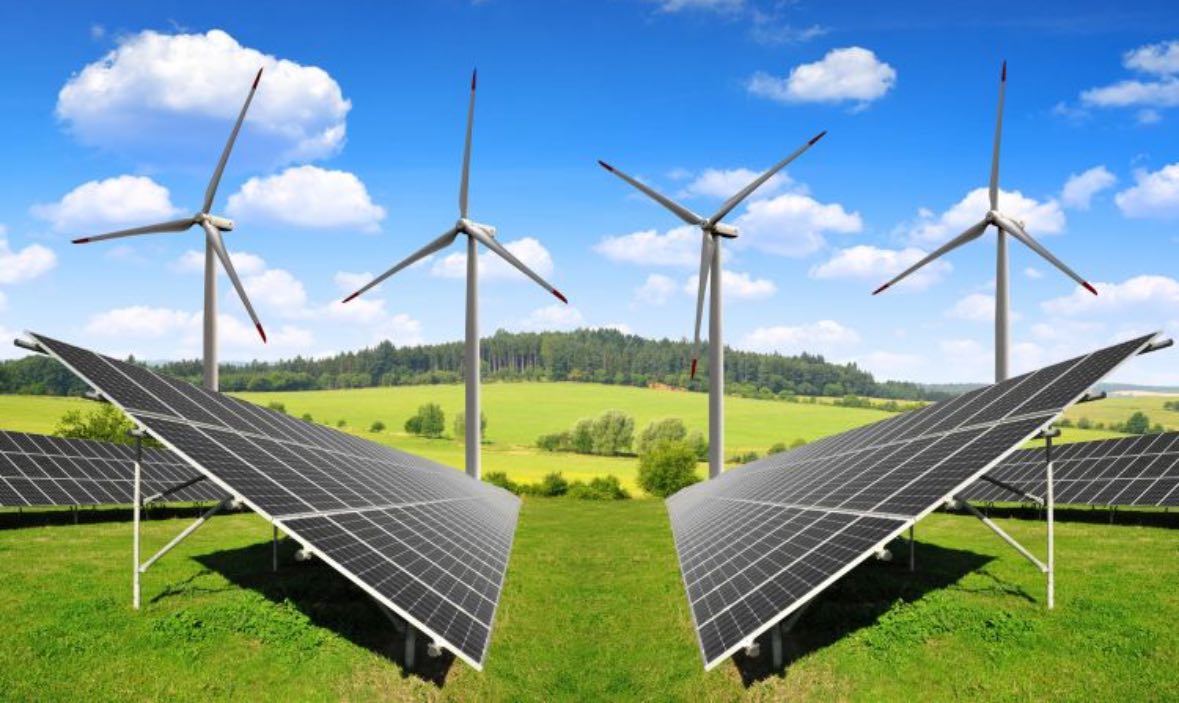Will renewable energies take the place of oil in the market?
Will renewable energies take the place of oil in the market?
The Middle East, known as the cradle of civilization and the beating heart of the world’s energy, has always been synonymous with oil. Black gold has not only shaped the economies of the countries in this region but has also played a significant role in its political and international equations.
However, today’s world is transitioning from the era of fossil fuels to the age of renewable energies.
The bright sun of the Middle East is now not only a symbol of heat and aridity but also a vast source of clean and sustainable energy. Can this sunrise lead to the sunset of oil in the Middle East?
Middle Eastern countries, aware of the limitations of oil resources and their environmental consequences, have gradually realized the importance of new energies.
Massive investments in solar, wind, and other renewable sources indicate these countries’ serious commitment to changing their approach in the energy sector.
Among them, some countries have become key players in the renewable energy scene in the region through significant investments and precise planning.
The status of leading countries in new energies
The ten main Middle Eastern countries that are leading in renewable energies, with significant investment volumes and energy production, are as follows:
1. The United Arab Emirates aims to become a hub for renewable energies and is executing large solar and wind projects.
The Noor Abu Dhabi solar power plant, with a capacity of 1,177 MW, and the Mohammed bin Rashid Al Maktoum Solar Park, with a planned capacity of 5 GW, are among these projects.
The UAE has invested billions of dollars in renewable energies so far and intends to supply 50% of its energy from renewable sources by 2050.
2. Saudi Arabia is seriously pursuing the development of renewable energies to reduce its dependency on oil.
The country plans to supply 50% of its electricity from renewable sources by 2030. Large solar power plants are being constructed in various regions of Saudi Arabia, and the country aims to increase its solar energy production capacity to 40 GW by 2030. Saudi Arabia’s investment in renewable energies is also estimated in billions of dollars.
3. Morocco has become one of the leaders in renewable energies in Africa by implementing large solar and wind projects. The Noor Solar Complex is one of the largest concentrated solar power plants in the world and is located in Morocco. The country aims to supply 52% of its electricity from renewable sources by 2030.
4. Egypt is undertaking numerous projects to attract foreign investments and develop renewable energies. The country plans to supply 42% of its electricity from renewable sources by 2035.
5. Jordan, facing a shortage of fossil energy resources, is seriously developing renewable energies. The country has managed to meet a significant portion of its electricity needs through solar and wind projects.
6. Israel, despite limited natural resources, is seriously developing renewable energies, especially solar energy. The country has managed to meet a significant portion of its electricity needs through solar energies by utilizing advanced technologies.
7. Oman is gradually increasing the share of renewable energies in its energy mix by investing in solar and wind projects.
8. Kuwait, despite its vast oil reserves, has recently started focusing on developing renewable energies and is planning to execute solar and wind projects.
9. Qatar is also investing in solar energies with the aim of reducing its dependency on oil and achieving sustainable development.
10. Lebanon, facing economic problems and energy shortages, is seriously seeking to develop renewable energies and is attracting foreign investments in this field.
Challenges
The transition from an oil-based economy to one based on new energies presents numerous challenges for Middle Eastern countries.
Heavy dependency on oil, outdated infrastructure, a lack of advanced technologies, and the need for significant investments are among the obstacles that must be overcome.
Additionally, geopolitical issues and regional competitions can also impact the development of new energies in the Middle East.
Some countries are concerned about losing their economic benefits if the demand for oil decreases and resist changing their approach.
Nevertheless, the benefits of transitioning to new energies for the Middle East are undeniable.
Reducing dependency on oil, creating new job opportunities, developing knowledge-based industries, improving air quality, and reducing greenhouse gas emissions are among the achievements of this transition. Moreover, new energies can help strengthen the energy security of Middle Eastern countries.
Diversifying energy sources and reducing dependency on a single source can reduce these countries’ vulnerability to oil price fluctuations and energy crises.
Ultimately, it can be said that the Middle East is on the brink of a major transformation in the energy sector.
The golden sunrise could mark the beginning of a new era, accompanied by the sunset of oil for this region.
An era in which new energies play a central role in the economy, politics, and lives of the people in the Middle East.
However, realizing this dream requires serious determination, precise planning, regional and international cooperation, and overcoming existing challenges.

